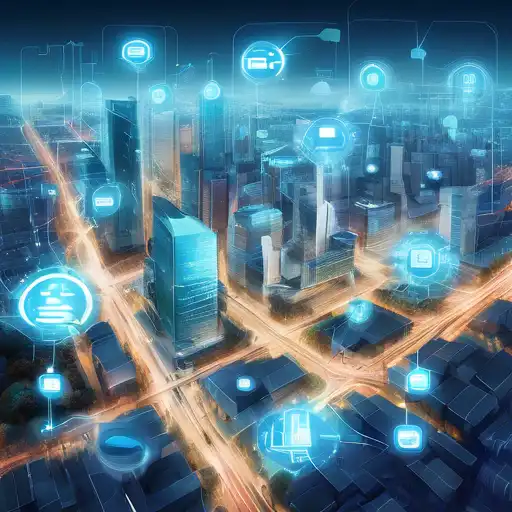Introduction to IoT in Smart Cities
The Internet of Things (IoT) is revolutionizing the way urban areas operate, making cities smarter, more efficient, and more sustainable. By connecting devices, vehicles, and infrastructure to the internet, IoT enables real-time data collection and analysis, leading to improved decision-making and enhanced quality of life for residents.
Key Components of IoT in Smart Cities
Smart cities leverage IoT through various components, including:
- Smart Sensors: These devices collect data on everything from traffic patterns to air quality.
- Connected Infrastructure: IoT enables bridges, roads, and buildings to communicate, improving maintenance and safety.
- Intelligent Transportation Systems: These systems optimize traffic flow and reduce congestion.
- Energy Management: Smart grids and meters help cities reduce energy consumption and lower emissions.
Benefits of IoT in Urban Environments
The integration of IoT into city infrastructure offers numerous benefits:
- Enhanced Efficiency: Automated systems reduce waste and improve service delivery.
- Improved Safety: Real-time monitoring can prevent accidents and quickly respond to emergencies.
- Sustainability: IoT helps cities reduce their environmental footprint through smarter resource management.
- Better Quality of Life: Residents enjoy cleaner air, less traffic, and more responsive city services.
Challenges and Considerations
Despite its advantages, implementing IoT in smart cities comes with challenges:
- Privacy Concerns: The collection of vast amounts of data raises questions about individual privacy.
- Security Risks: Connected devices can be vulnerable to hacking and cyberattacks.
- High Costs: The initial investment in IoT infrastructure can be significant.
- Technical Complexity: Integrating diverse systems requires sophisticated planning and coordination.
Future Prospects
The future of IoT in smart cities is bright, with advancements in AI and machine learning further enhancing the capabilities of connected devices. As technology evolves, cities will become even more responsive to the needs of their inhabitants, paving the way for a new era of urban living.
For more insights into how technology is shaping our world, explore our technology trends section.
